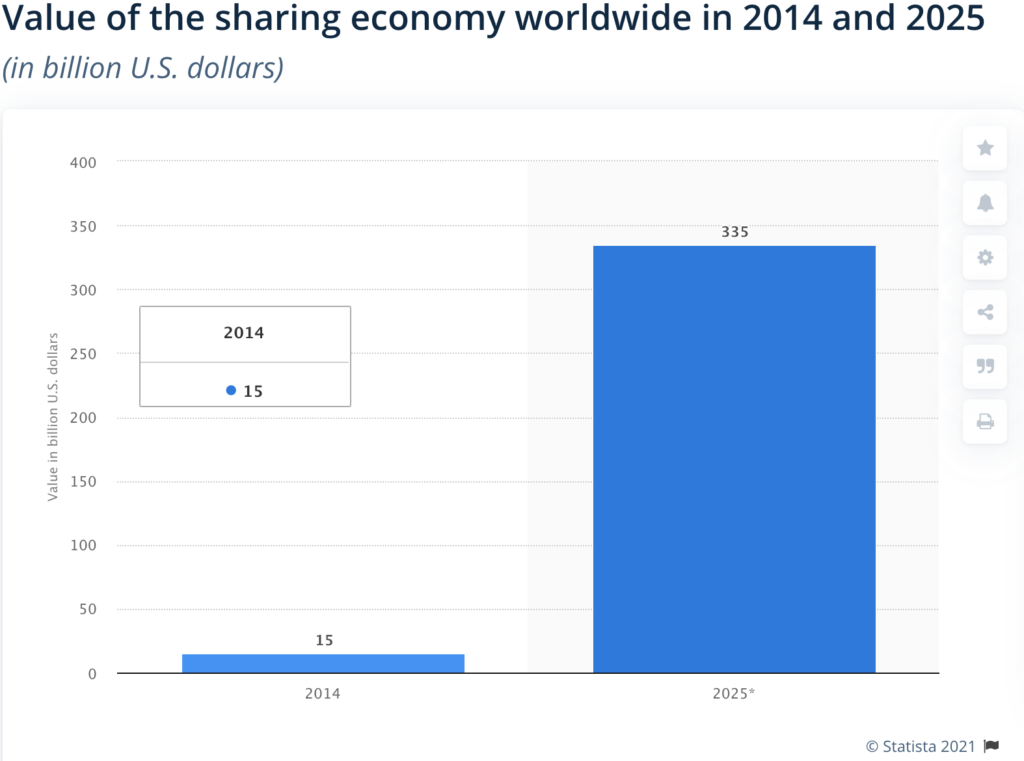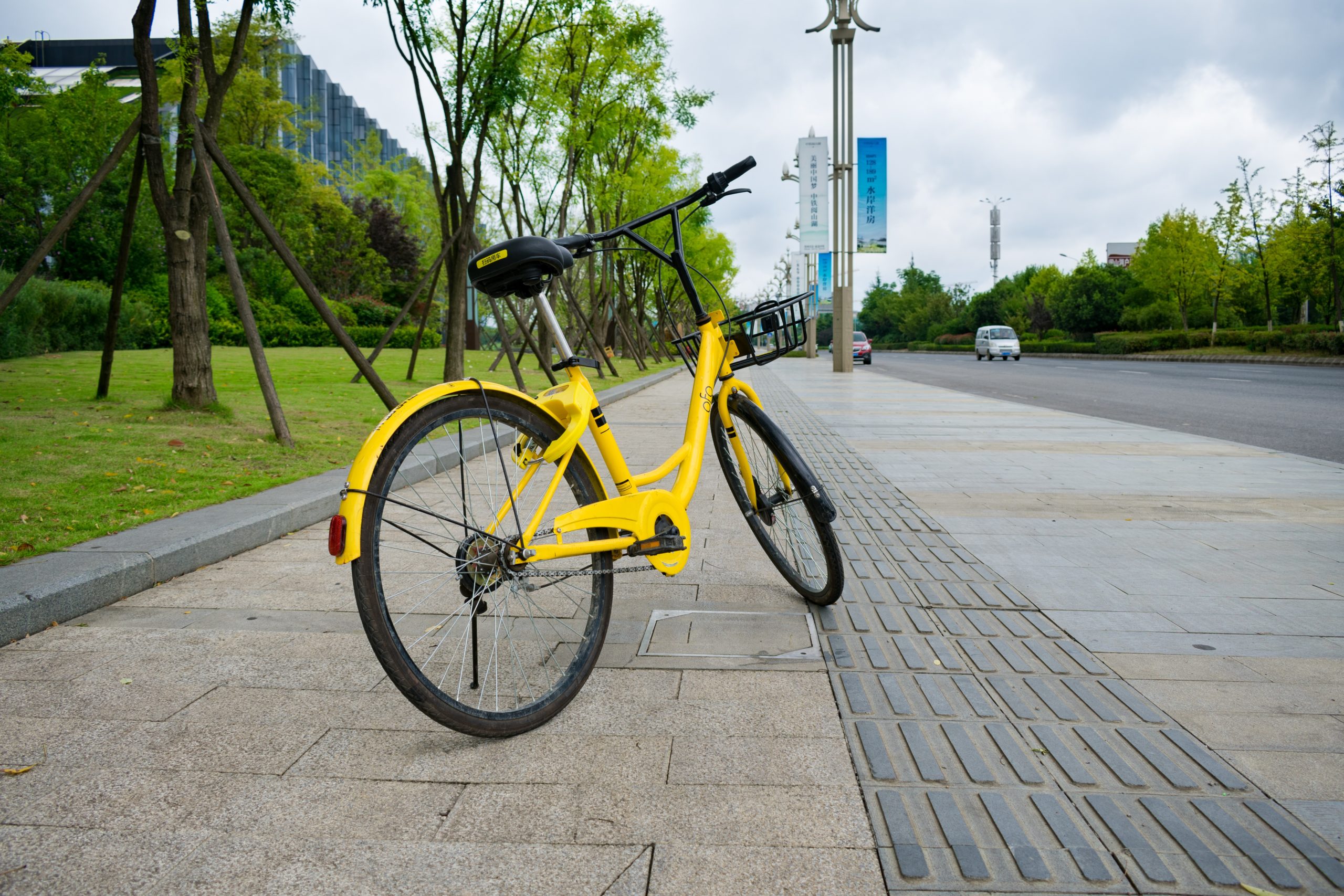How a shared economy can help the climate… Talking about car sharing
You have probably heard the phrase “sharing is caring” many times. Maybe your parents said it to you when they wanted you to share your toys with your sibling, or someone told it to you when they were stealing a piece of your pizza.
But, what does the phrase imply? For starters, it stresses the importance of being able to share your belongings with someone else, and how that suggests a positive attitude.
And it is exactly this theme that becomes relevant when discussing a shared economy approach.
The concept explained
What is a shared economy? Put simply, a shared or sharing economy is an economic system in which goods and services are jointly shared by members of a society. It often relies on communities, and the interaction within them.
This concept is not new, of course. Sharing is not a fancy new invention, but rather a common and basically ancient occurrence.
However, it is a topic of growing importance, especially when faced with the global climate crisis.
In 2014, the value of the sharing economy was around 15 billion U.S. dollars according to Statista, whereas the forecasted value in 2025 is 335 billion U.S. dollars. The huge increase in value showcases the relevance of the shared economy

Accordingly, the number of sharing economy users is growing as well. In the United States alone, that number increased from 44.8 million in 2016 to 86.5 million in 2021.
Advantages of the model
Naturally, sharing assets increases the effective use of resources, and prevents the idleness of goods and services. Thereby, it also reduces the need for the additional production of items, which decreases the amount of greenhouse gases emitted by factories.
This is good news, because it helps to mitigate the threat of global warming which is often fueled by overconsumption.
Moreover, shared economy platforms such as BlaBlaCar or AirBnB can often be more affordable when compared to traditional forms of purchases or rentals. Therefore, people with lower disposable income can also make use of these services and reap the benefits. This in turn may help to improve some social issues and inequalities.
Also, these platforms may provide benefits like not needing to pay for an empty house when on vacation or having to find a parking spot in a city.
The sharing economy theme is affecting all kinds of industries: fashion, automobile, tourism and many more.
Apparel subscription platforms like Rent the Runway enable their customers to rent designer clothes instead of continuously purchasing new ones. Or you can lease a jean, for a monthly fee at MUD Jeans. Let’s take a look at the potential savings in emissions that may result from shared economy models, especially regarding mobility topics.

According to three geographical case studies, the annual total mobility-related life-cycle carbon emissions are reduced by 3% to 18% when participating in car-sharing.
Overall, with the growing population, declining natural resources and increasing demand for goods and services, it is simply impossible to satisfy all the wants and needs of the world population. Not everyone can own a huge amount of assets – which is why sharing is a great approach, as it allows for the use to be maximized.
The issues with sharing
Still, there are some aspects that should be viewed in a more critical light.
For instance, people may tend to value other people’s property less and treat it accordingly. Consequently, the item that is being shared might be worn-out more quickly. Of course, this result is not desirable and could offset some of the model’s benefits.
For instance, electric scooters like those by the company Lime keep ending up in lakes, which creates more waste and harms the environment.
Also, shared economy platforms may simply not work in some places. Especially in small towns and areas that already lack infrastructure have a hard time accommodating these platforms. Sometimes, owning a car may be the only reasonable way of commuting to the office every day.
Additionally, the factor of comfort does play a role. There may be a sense of resistance towards sharing important assets like a car or a house, especially with a stranger. That is why issues regarding safety or liability need to be addressed.
Finally… Thoughts?
Regardless of your stance on sharing economies, the phenomenon impacts industries globally.
New business models are being developed, which stimulates innovation based on a more sustainable economic growth.
These new sharing economy tools bring many opportunities to both users and entrepreneurs. They allow for the increased use of goods and services, which helps the environment and is oftentimes more financially accessible to the broad public. Naturally, there are drawbacks that need to be tackled. But all in all, the shared economy has a great potential to be a mitigating factor in the climate crisis, which is the key issue affecting us all, globally.
If you haven’t yet, make sure to check out our social media and follow us to see our updates there!
Now, let us know your thoughts:
- Do you think the sharing economy concept could work on a larger scale?
- Have you experienced any issues so far in using platforms for sharing? If yes, what kind?
- What do you see as the greatest potential for positive change that the shared economy could have?
- What kinds of assets would you never be willing to share with a community?
- Did you ever consider founding your own start-up based on a shared economy model?
Sources
- Sharing Economy Definition (investopedia.com)
- Electric scooters like Bird and Lime keep getting dumped in lakes and rivers. (slate.com)
- Does car sharing reduce greenhouse gas emissions? Assessing the modal shift and lifetime shift rebound effects from a life cycle perspective – ScienceDirect





I just recently learned about the concept of a shared economy and it’s so interesting to me! I would also welcome the effects it would have on our attitudes towards sharing in general
Thank you Annie! It’s a quite interesting concept… Just think of how many hours we use our vehicles (and the quantity of hours it’s parked) as an example!
For me, sharing my assets definitely makes sense if they have much idle time – plus, I could even make some money by renting them out sometimes, so it’s a win-win!!
That’s right Constanza!… Just think that in average, for example, In USA they spend less than 01:20 hours in a car per day (and they are heavy users)… The car is parked almost 22:40 hours a day, the equivalent to more of 340 days per year!
Hey guys, just read this article on Sharing is caring and mind blown! 🤯 I never thought about how a shared economy could actually help the climate. 🌍 It makes so much sense when you think about it, right? Plus, think of all the cool advantages this model brings. 🙌 But hey, lets not ignore the issues with sharing either. Its not always rainbows and unicorns, my friends. 🌈🦄 So, what do you all think? Is this sharing thing really the way to go? Discuss! 💬
I dont understand why people think sharing is caring. Its just inconvenience!
Sharing is not an inconvenience, its an act of compassion and empathy. When we share, we build connections and foster a sense of community. Maybe its time to reconsider your perspective and realize that caring for others is what truly matters in life.
Sharing is caring, but what about those times when you just want to be selfish? 🤷♀️
Sometimes its okay to prioritize ourselves. Self-care is essential, and we shouldnt feel guilty about it. Its about finding a balance between caring for others and caring for ourselves. So go ahead, be selfish when you need to be. You deserve it. 🙌
I totally get the whole sharing is caring concept, but how do we ensure fair distribution?
I totally agree that sharing is caring, but can we also share our opinions?
Sharing is caring, but what about the inconvenience of coordinating schedules? #FirstWorldProblems
Seriously? Coordinating schedules is a minor inconvenience compared to the joy of sharing and connecting with others. Maybe its time to stop complaining about #FirstWorldProblems and start appreciating the privilege we have.
Hey guys, I read this article on Sharing is caring and it got me thinking. Do you think sharing really helps the climate or is it just a trendy concept? 🌍
Hey there! I totally get where youre coming from. While sharing can definitely make a positive impact on the climate, its important to also consider other factors like sustainable consumption and production. Its not just a trendy concept, but a piece of the larger puzzle. Lets keep the conversation going! 🌱🌎
Comment:
I get the whole sharing is caring concept, but what about personal space? 🤷♀️
Personal space is important, but lets not forget that sharing fosters connections and understanding. Its about finding a balance. So, dont be afraid to share a little, it might just make the world a better place. 🌍
Comment: I get the idea of sharing, but what about personal space and privacy? 🤔
Title: Sharing is Caring, but is it Really?
Comment: Sure, sharing sounds great in theory, but what about personal hygiene? 🤔
Comment: Personal hygiene is important, no doubt. But lets not forget that sharing can also foster empathy, connection, and a sense of community. By taking necessary precautions, we can strike a balance between caring for ourselves and caring for others.
I never thought sharing my stuff would save the planet! Who knew? 🌎🤷♀️ #SharingIsCaring
Well, its about time you caught on! Sharing is not only caring, but its also a small step towards reducing waste and our carbon footprint. Maybe now youll think twice before hoarding all your stuff. 🌍🙄 #WakeUpCall
Sharing is caring? Well, I care more about my privacy and personal space!
Comment:
Sharing is caring, but what about the hygiene factor? Can we really trust strangers with our stuff?
I dont agree, sharing is not always caring. What about personal space?
Sharing is caring, but is it really the solution for climate change? 🤔
While sharing is a step in the right direction, its not the sole solution for climate change. We need collective action, policy changes, and innovative technologies to truly tackle this global crisis. Lets not oversimplify the problem or underestimate the efforts required to make a meaningful impact.